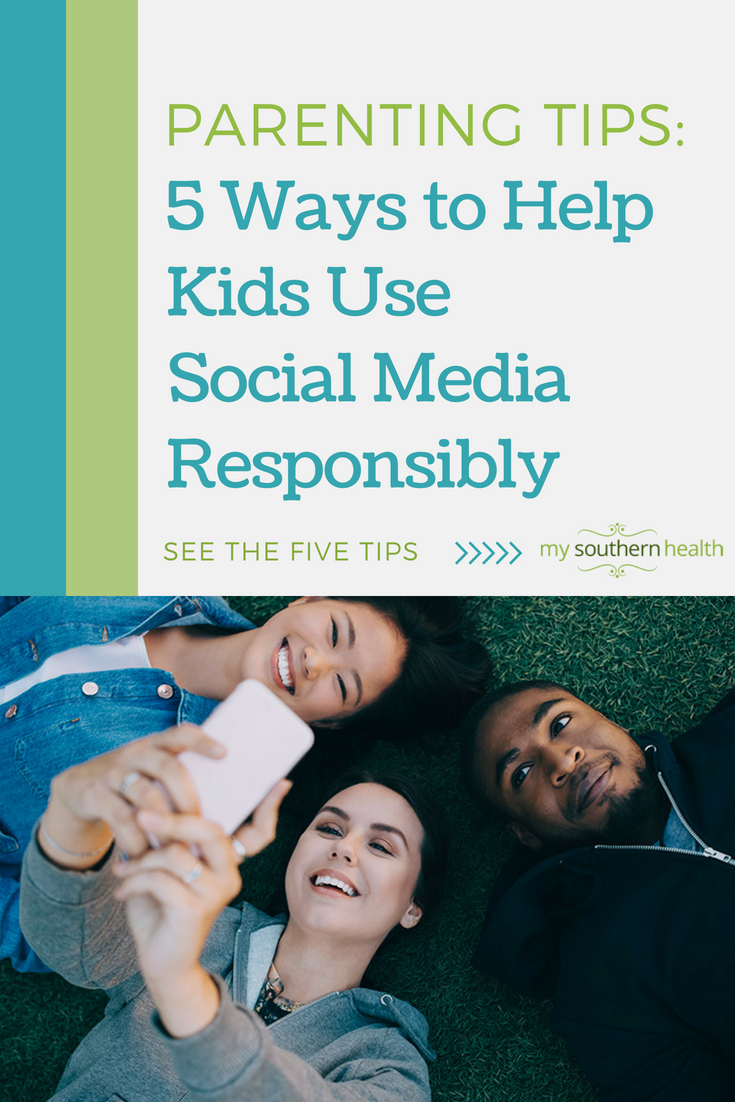Social media has its pros and cons. Teenagers use it heavily. Here’s how to help them use social media responsibly.
Teenagers are heavy users of social media. Nearly all U.S. children age 13 to 17 — 95 percent — have smartphones, according to a Pew Research Center survey released in May 2018. Smartphones give them easy access to the Internet and social media platforms along with it.
Teens typically use more than one social media site. Among the teens Pew contacted, 85 percent said they use YouTube; 72 percent use Instagram; 69 percent use Snapchat; 51 percent use Facebook; and 32 percent use Twitter. There are other social media platforms, too, with much smaller teen participation. Also, the survey revealed that “45 percent of teens now say they are online on a near-constant basis.”
That huge exposure to social media can create problems. Debra Braun-Courville, M.D., an adolescent medicine expert at Monroe Carell Jr. Children’s Hospital at Vanderbilt points out that social media cannot only disrupt time that a teen needs to spend sleeping or doing school work, but it can also influence beliefs and behaviors. There are several well-established risks to social media use, Braun-Courville said, which include: privacy concerns, sexual predators, trolling, cyberbullying, identity theft and the psychosocial consequences of using social media too often.
Adolescents today, especially girls, worry not only about maintaining a supposedly perfect image in real life but on social media, too. It can create stress and anxiety if teens feel that their own life doesn’t measure up to the “perfection” they see posted on friends’ or celebrities’ social media accounts.
Some 24 percent of teens contacted by the Pew survey said that social media has mostly negative effects, including cyberbullying, online distractions, peer pressure, erosion of in-person relationships and more.
More than 30 percent of the teens, however, believe that social media has mostly positive effects, including communication with friends, learning new things, entertainment and other perks.
Because social media is such a powerful force in kids’ lives, parents need to have an ongoing conversation with their tweens and teens about social media. Using social media responsibly can have positive benefits for teens and families, Braun-Courville said; it’s all about balance.
5 ways to help your teen use social media responsibly
- Set a limit on how much computer and phone time your teen is allowed.
- Be a positive role model for your teen. If you are always on the phone or computer, most likely your teen will mirror what you are doing. Set aside time when all electronic devices are turned off. There are cell phone “jails” where all devices are kept during that time. Now that’s a great way of making everyone accountable. (Wondering when it’s time to allow your child a cellphone? Read another parent’s experience, here.)
- Get the password and user names for all of the social media outlets that your teen uses. There will definitely be a power struggle over this. It is in children’s best interest, however, to have parents spot-check their social media accounts periodically to see what they are posting and who they are following and communicating with.
- Teach your teen never to share any personal information over the Internet, such as their address, phone number or inappropriate pictures. Your teen may have good intentions, but the person on the other end may not be who or what is portrayed online.
- Remind your teen that everything he or she posts online is there forever, even if it’s deleted. A teen may post something while upset. If she doesn’t want anyone to read or see something, she shouldn’t post it. Colleges and potential employers look at their social media accounts.
Social media is not all bad. The key is to educate your teen and set up limitations and expectations from the beginning.


